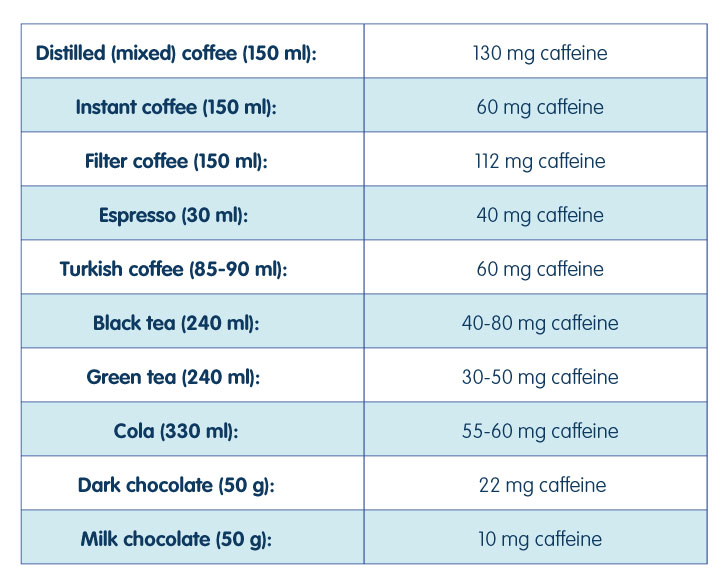Caffeine is a stimulating chemical compound naturally found in plants such as coffee beans, tea leaves, and cocoa.
Health Benefits of Caffeine
Caffeine increases energy levels and mental alertness by stimulating the brain and central nervous system. Also, caffeinated beverages such as tea and coffee contain antioxidants and beneficial compounds that can protect cells from damage, reduce inflammation, and prevent chronic diseases.
Too Much Caffeine Is Harmful
When caffeine is consumed too much, it can cause side effects such as high blood pressure, insomnia, rapid heartbeat, increased anxiety, dizziness, restlessness, abdominal pain and diarrhea. It is safe for healthy individuals to consume up to 400 mg of caffeine daily, but this amount is lower for pregnant women.
Recommended Amount of Caffeine During Pregnancy
The American College of Obstetricians and Gynecologists (ACOG) recommends limiting daily caffeine intake to 200 mg during pregnancy. Caffeine takes 1.5-3.5 times longer to be eliminated from the body during pregnancy, and caffeine can cross the placenta and enter the baby’s bloodstream, affecting the baby’s health. Too much caffeine during pregnancy can increase the risk of miscarriage or premature birth.
Caffeine Amounts in Foods

Resources:
- https://medlineplus.gov/caffeine.html
- Saimaiti, A., Zhou, D. D., Li, J., Xiong, R. G., Gan, R. Y., Huang, S. Y., Shang, A., Zhao, C. N., Li, H. Y., & Li, H. B. (2022). Dietary sources, health benefits, and risks of caffeine. Critical reviews in food science and nutrition, 1–19. Advance online publication. https://doi.org/10.1080/10408398.2022.2074362
- Huang D. (2018). Dietary Antioxidants and Health Promotion. Antioxidants (Basel, Switzerland), 7(1), 9. https://doi.org/10.3390/antiox7010009
- Griffiths, K., Aggarwal, B. B., Singh, R. B., Buttar, H. S., Wilson, D., & De Meester, F. (2016). Food Antioxidants and Their Anti-Inflammatory Properties: A Potential Role in Cardiovascular Diseases and Cancer Prevention. Diseases (Basel, Switzerland), 4(3), 28. https://doi.org/10.3390/diseases4030028
- Wikoff, D., Welsh, B. T., Henderson, R., Brorby, G. P., Britt, J., Myers, E., Goldberger, J., Lieberman, H. R., O’Brien, C., Peck, J., Tenenbein, M., Weaver, C., Harvey, S., Urban, J., & Doepker, C. (2017). Systematic review of the potential adverse effects of caffeine consumption in healthy adults, pregnant women, adolescents, and children. Food and chemical toxicology : an international journal published for the British Industrial Biological Research Association, 109(Pt 1), 585–648. https://doi.org/10.1016/j.fct.2017.04.002
- Moderate caffeine consumption during pregnancy. Committee Opinion No. 462. American College of Obstetricians and Gynecologists. Obstet Gynecol 2010;116:467–8.
- Rhee, J., Kim, R., Kim, Y., Tam, M., Lai, Y., Keum, N., & Oldenburg, C. E. (2015). Maternal Caffeine Consumption during Pregnancy and Risk of Low Birth Weight: A Dose-Response Meta-Analysis of Observational Studies. PloS one, 10(7), e0132334. https://doi.org/10.1371/journal.pone.0132334
- https://fdc.nal.usda.gov/fdc-app.html#/?component=1057


